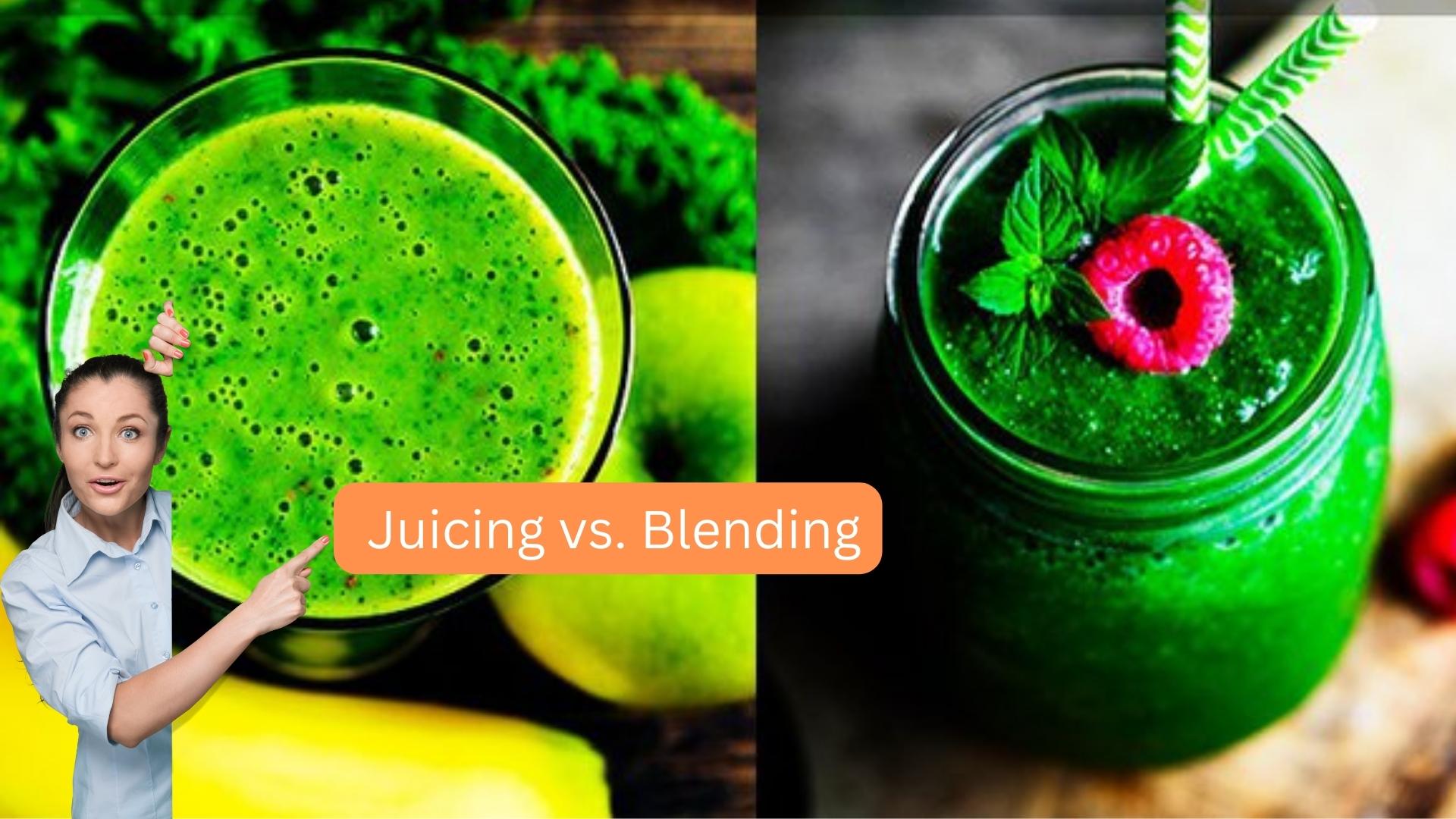Blending vs. Juicing: Which is better for health (and weight loss)?

Whether you prefer them raw or cooked, vegetables and fruits are of the utmost significance for achieving optimal nutrition and maintaining a healthy lifestyle. But have you ever considered squeezing the juice out of them or mixing them? If you answered “yes” to any of these questions, then clinical dietitian Shivika Gandhi Anand wants you to know that there are significant distinctions between juicing and blending vegetables and fruits, as well as what those changes mean for your diet objectives.
It’s possible that the nutrients in your fruits and veggies will be more readily absorbed if you juice them. However, the process eliminates all of the fibre that is necessary for proper digestion, maintaining appropriate blood sugar levels, and reducing the chance of developing cardiovascular disease, as she explained.

Nevertheless, when fruits and vegetables are blended, all of the pulp and the fibre that is necessary for satiety, digestion, and regulation of blood sugar levels are preserved. Shivika continued by saying that the fibrous membranes of the fruits contain antioxidants as well and that these antioxidants are concentrated in a blended smoothie.
“When you juice fruits or vegetables, you are essentially extracting all of the liquid while leaving all of the fibre and pulp behind. This is the case since you are leaving behind all of the pulp. Blending, on the other hand, can produce a single, consumable mixture that contains all of the liquid as well as the fibre. As a consequence of this, the kinds of nutrients that you get after each procedure are different,” Dr Batra explained.
Keep these things in mind
Diets low in fibre and low in residue are often prescribed to people who suffer from certain diseases and disorders that cause malabsorption. The juicing method was suggested as a viable option by the specialist in these circumstances.
How can I lose weight?
Always make sure to eat your fruits and vegetables rather than drinking them if you want to successfully lose weight. This is due to the fact that juice diets are not intended to replace meals. If you deny your body the calories and protein that it needs, you may lose weight rapidly; however, the weight that you lose is typically made up of water and muscle mass, which is not a healthy or sustainable way to reduce weight in the long run.
According to nutritionist and food coach Anupama Menon, “juicing can also be more expensive,” which is another factor that may influence your decision regarding whether or not you want to juice your fruits. “You need to use a bigger amount of produce (for example, about two oranges, one stem of kale, half of a red pepper, one cup of berries, and one stalk of broccoli, etc.) to make approximately one cup of juice of each,” Menon pointed out. “For example, about two oranges.”
Shivika believes that blending is a superior option to juicing in situations where weight loss is not a priority. Menon and I both agree with you, and we also pointed out that the presence of both soluble and insoluble fibres (pulp) results in slower and more persistent absorption. According to Menon, “This satisfies appetite and helps you feel fuller, making it a great candidate for weight loss because of these two benefits.”
- Your Ultimate Guide to Travel Insurance for Adventure Sports
- A Guide to Renters Insurance for Pet Owners: Pet-Proof Your Policy
- Safeguard Your Future: Understanding Identity Theft Insurance
- Safeguard Your Event: Understanding Event Cancellation Insurance
- Everything You Need to Know About Critical Illness Insurance Riders
- Home Equity Loans vs. HELOCs: Which is Right for You?












